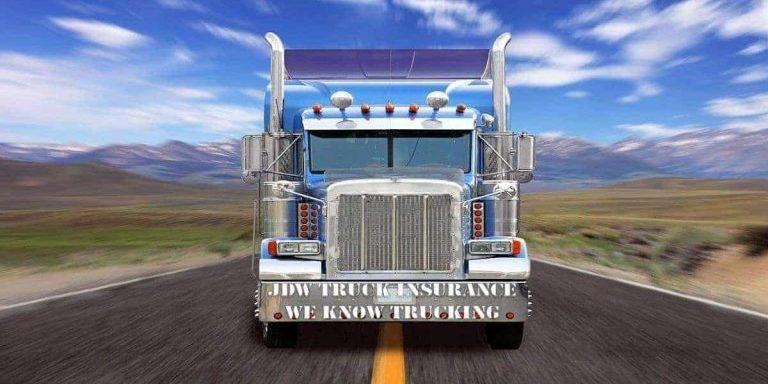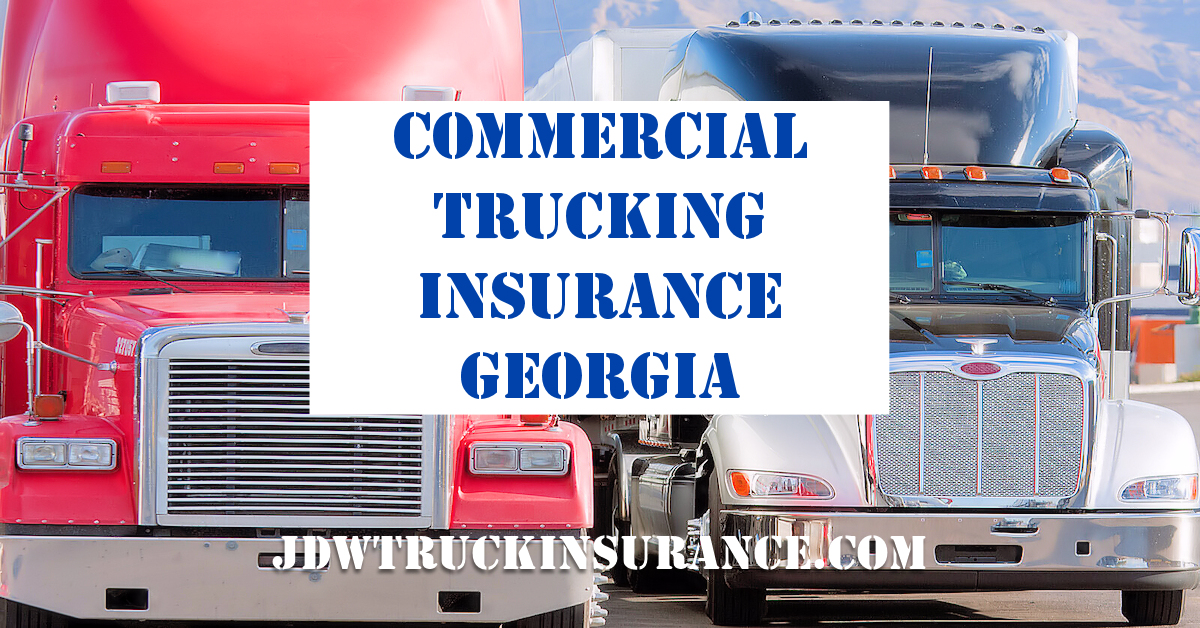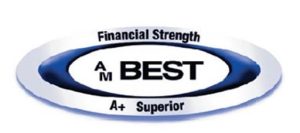Owner Operator Trucking Insurance Troupville, Georgia
New Authority Truck Insurance Georgia
Commercial truck insurance Georgia. Owner Operator Trucking Insurance Troupville, Georgia. Affordable commercial truck insurance GA. Top rated commercial truck insurance companies Georgia.
Owner Operator Trucking Insurance Troupville, Georgia
If you are searching for New Authority Truck Insurance Georgia. JDW Truckers Insurance specializes in New Authority Truck Insurance in Georgia. We help you get affordable commercial insurance rates for your new authority.
We offer quote from only the top rated commercial truck insurance companies who offer the best rates for your new authority in Georgia.
JDW will help get the the correct commercial truck insurance in place which will fit your budget and allow you to haul the cargo you want and need to in order to be successful.
We are here to answer your questions with fast and friendly service.
Owner Operator Trucking Insurance Troupville, Georgia
We offer affordable new authority trucking insurance for the entire state of Georgia.
We Customize your New Authority Truck Insurance to Help you Save Money!
Our agents at JDW Truckers Insurance know trucking insurance in Georgia. We will explain the different options and commercial truck insurance requirements in Georgia.
We help you get the right coverages in place so you are no over paying for coverages you may not need. We also help you make sure you have the coverages you need in place. And we do this at affordable commercial truck insurance rates.
New Authority Truck Insurance Requirements and Options
General Liability Insurance for Truckers
- General liability insurance for truckers should not be confused with primary liability for truckers.
- Similar to primary liability. General liability offers coverages to pay for physical damage to other and/or bodily injury to others. BUT there is a difference between the two.
- For example, if you are loading or unloading and you cause injury to someone or their property this is when the general liability policy would respond.
- The actions of a driver while representing the insured and on the premises of others, such as loading docks and truck stops
- General Liability is normally offered $1,000,00 per occurrence and $2,000,00 aggregate. What does this mean?
- It the insurance company will pay up to $1,000,000 for any one claim and no more than $2,000,000 per year for the total of all claims.
- General liability can be required by shippers and other companies such as the UIIA and flatbed operations.
- If there is any chance you might be involved in loading or unloading. General Liability is relatively inexpensive and is an advised coverage.
Auto Liability Insurance
- Your Auto Liability or primary liability will be the major cost for your trucking insurance policy. Although the FMCAS can only require $750,000 in most cases shippers will require $1,000,000 in primary liability insurance coverage before they will allow you to pick up loads.
- Primary liability insurance covers damages to third parties for bodily injury and physical damage to others property in the event of an accident.
Medical Pay
- In most cases this is a low cost add on to your primary liability insurance to cover medical expenses.
PIP – Personal Injury Protection
- Some states require this coverage and, in many cases, can reduce the need for Medical Pay.
- Personal injury protection (PIP), also known as no-fault insurance, covers medical expenses and lost wages of you and your passengers if you’re injured in an accident. PIP coverage protects you regardless of who is at fault.
Uninsured Motorist
- If you’re hit by a driver with no insurance…
- Uninsured motorist bodily injury (UMBI) may pay medical bills for both you and your passengers.
- Uninsured motorist property damage (UMPD) may pay for damage to your vehicle.
Underinsured Motorist
- If you’re hit by a driver with not enough insurance…
- Underinsured motorist bodily injury (UIMBI) may pay medical bills for both you and your passengers
- Underinsured motorist property damage (UIMPD) may pay for damage to your vehicle
Motor Truck Cargo
- MTC or Cargo insurance provides insurance on the freight or commodity hauled by a for-hire trucker. It covers your liability for cargo that is lost or damaged due to causes like fire, collision or striking of a load.
- If your load is accidentally dumped on a roadway or waterway, some cargo forms offer Removal Expenses coverage pays for removing debris or extracting pollutants caused by the debris. And can also pay for costs related to preventing further loss to damaged cargo through Sue and Labor Coverage and legal expenses in the defense or settlement of claims. Another option is Earned Freight Coverage to cover freight charges the customer loses because of an undelivered load.
- Cargo insurance deductibles can be set at $1,000, $2,500, $5,00 or even higher if you are self-insured.
- Cargo coverage limits are normally set at $100,00 but some shippers may have higher requirements depending on the cargo you are hauling.
- Cargo policies can have exclusions stating what cargo it will or will not cover.
Trucking Physical Damage Insurance (PD)
- Physical damage insurance coverages are designed to pay for losses to your equipment and damages to others equipment. (Others equipment must be listed on your policy).
- If you own or lease equipment. You may be required to have PD by bank or leasing company to carry a set amount of physical damage insurance and name them as a Loss Payee.
- PD can also cover damage to others equipment you are in possession of if the coverage is listed on your policy. An example would be non-owned trailer insurance coverage.
- Deductibles for physical damage range from $1,000 to $5,000.
- Required deductibles. If you have a loan on your equipment or it is leased. They bank or leasing company may have a minimum deductible you can have on your physical damage policy.
Owner Operator Trucking Insurance Troupville, Georgia
Chat with JDW Truckers Insurance. We are fast and friendly. Great customer service. Free 24/7 COI.
We offer affordable new authority truck insurance in:
AL – AR – FL – GA – IN – MO – MS – NC – OH – PA – SC – TN – TX – VA
We offer new authority truck insurance quotes for:
- Dry van
- Flatbed
- UIIA
- Amazon
- Reefer and more
Owner Operator Trucking Insurance Troupville, Georgia
Owner Operator Trucking Insurance Troupville, Georgia
“Troupville” (occasionally recorded as Troupeville) is an extinct unincorporated community in Lowndes County, Georgia, United States, near Valdosta. Troupville was a riverboat landing near the confluence of the Withlacoochee River and the Little River (Withlacoochee River) at the uppermost navigable point. It was the third county seat of Lowndes County. Troupville was named after Governor George Troup.
Railroads were superseding riverboats across the state. After a railroad station was established at Valdosta in 1859, many Troupville residents picked up their houses and moved to the railroad. They founded Valdosta, which the following year was designated by the legislature as the county seat.
In 1833, Lowndesville, Georgia replaced Franklinville, located east of modern Hahira, as the county seat.
In 1834, a group of citizens were appointed to select a new county seat to keep pace with settlement. In July 1836, a group of commissioners were advertising for merchants and mechanics to settle at Troupville. They believed that the Little River and Withlacoochee River could be made navigable to this point at a small expense. After the county seat was moved away from Franklinville and Lowndesville in turn, they declined.
In October 1836, advertisements were put in newspapers for proposals to build a courthouse at Troupville. The city was incorporated on 14 December 1837 by an act of the Georgia legislature and designated as the county seat (the third).
Troupville’s location near the confluence of the Withlacoochee and Little Rivers, on the stage route from Thomasville to Waresboro, and along the planned route of the Brunswick and Florida Railroad, soon proved prosperous. In 1839, town lots were being sold at $3,443. A decade later they had risen to $9,162. At its peak, Troupville had three hotels, four stores, numerous shops, three churches, and professionals of various sorts. It also had a newspaper entitled the South Georgia Watchman, later called the Troupville Watchman. Located in an area of large cotton plantations, Troupville also served as a gateway town to the new state of Florida. A mile to the north of the town was a horse racetrack, popular with many men.
By the 1850s, two different companies were competing to build a railroad through south Georgia. The Brunswick and Florida Railroad had an older charter, but lacked enough financial backing. The Savannah, Albany, and Gulf Railroad Company had the financial backing, but lacked the right of way through south Georgia. By the early 1850s, the Brunswick and Florida Railroad had completed its route as far as Schlatterville. In February 1856 the Atlantic and Gulf Railroad Company received a charter to construct a line from the junction of the Savannah, Albany, and Gulf Railroad and the Brunswick and Florida Railroad and to western border of the state that was to pass through Lowndes County. A law passed at the same time required the Brunswick and Florida Railroad to forfeit its right of way through central south Georgia in exchange for financial backing from the state. Two years of disagreements and agreements between the competing companies followed. Eventually the Brunswick and Florida Railroad forfeited its right of way.
Three different routes through Lowndes County were surveyed by E.L. Heriot, chief engineer for the company: a route through northern Troupville, a line through northern Lowndes County, and a line passing through Lowndes County and crossing the Withlacoochee River at a mineral springs. The decision to go with the third route was published on June 17, 1858. Heriot reasoned that the southern route required less curvature and fewer changes in grade than the shorter route through Troupville. Days later on June 22 at 3:00 am, the Lowndes County courthouse at Troupville was set on fire by William B. Crawford. Crawford fled to South Carolina after being released on bond. On August 9, a meeting convened in the academy building in Troupville to discuss organizing a new county. They decided to take area from Lowndes County, west of the Withlacoochee River (also known as the Little River), to form a new county to be called Brooks County.
The construction of the Atlantic and Gulf Railroad through southern Lowndes County signaled the end of Troupville. Riverboats had become obsolete and establishing a town at the junction of the rail lines under construction was crucial for the livelihood of Lowndes County. Many residents physically moved their homes and businesses to Valdosta. Troupville quickly lost its charter as county seat to the newly founded Valdosta.
In early 1871, a toll bridge crossing the Little River from Troupville to Brooks County was completed. By 1874 Troupville was described by a Valdostan, as being “a deserted village or rather an old field with scarcely a vestige of the village remaining.”
The town’s municipal charter officially was repealed in 1995.
Choose the Right Agent
When choosing the agent, you want to represent you to the insurance companies. Pick an agent that is trained in commercial truck insurance. And make sure the agent you choose to work with is there when you need them. Our agents are trained in commercial truck insurance and are easy to contact. Email, phone call or text message. We respond quickly to our clients.
Certificate of Insurance
Not being able to get a quick COI could cost you money by not being able to pick up a load for the lack of a COI. Our clients at JDW Truckers Insurance are given access to our COI Portal where they can issue a COI 24/7 free of charge.
Insurance Companies Customer Service
Not only should you choose a responsive agent but you will want to be insured by a commercial insurance company who also responds to your requests and are there to help you in case of a claim or endorsements
AM Best Ratings
The AM Best Rating of the commercial truck insurance company you choose to insure your operation should not be over looked. You want to be insured by a trucking insurance company that has the financial stability to pay claims. Many shippers will require an AM Best Rating of A – minus of better. At JDW all of network of commercial truck insurance companies have an AM Best Rating of A – or better.



